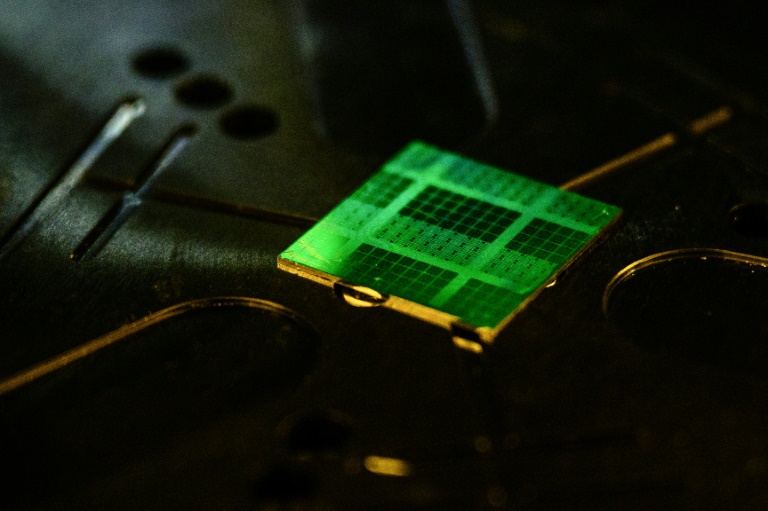China Hits Back at U.S. 'Bullying' Tactics Over New Chip Restrictions

On Wednesday, Beijing criticized the latest US warnings regarding the utilization of Chinese-made AI chips, threatening to counter what it termed as "coercive" attempts to limit access to advanced semiconductor technology and disrupt supply chains.
In recent years, Washington has attempted to restrict the export of advanced chips to China due to concerns that these technologies might be utilized for developing Chinese military systems and potentially eroding America's leadership in artificial intelligence.
Last week, the administration of US President Donald Trump eased certain export restrictions on sophisticated computer chips, addressing requests from nations that claimed they were excluded from accessing vital technologies required for developing artificial intelligence.
Certain U.S. legislators were concerned that these limitations might encourage nations to seek AI chip supplies from China instead, which could accelerate the advancement of cutting-edge technologies under the Chinese government’s purview.
However, Washington introduced new guidelines cautioning companies that utilizing Chinese-produced advanced AI semiconductors, particularly those made by technology leader Huawei such as their Ascend chips, could subject them to potential breaches of US export restrictions.
In a statement Wednesday, Beijing's commerce ministry described the warnings as "typical unilateral bullying and protectionism, which seriously undermine the stability of the global semiconductor industry chain and supply chain".
China charged the US with "misusing export regulations to curb and constrain China."
The commerce ministry stated that these measures severely infringe upon the lawful rights and interests of Chinese companies and jeopardize China's developmental interests.
The warning further stated that "any entity or person that implements or aids in implementing these measures" might be considered in breach of Chinese legal statutes.
And it pledged to take "strong actions to protect its rightful benefits" in return.
Last week, the United States issued a warning regarding the possible repercussions of permitting American AI chips to be utilized for training artificial intelligence models in China.
The U.S. Commerce Department stated that their policy is designed to share American AI technology with allied nations globally, while ensuring it stays away from competitors who might misuse it.
Previously, U.S. regulations classified nations into three categories, each associated with a different degree of limitations.
Leading nations such as Japan and South Korea were not subject to any export limitations, whereas countries in the secondary category, including Mexico and Portugal, encountered caps on the quantity of chips they could obtain.
Companies such as Nvidia and AMD, which have significant interests in chipmaking, advocated against the graduated export controls and experienced an increase in their stock values when the Trump administration signaled it might reconsider implementing these rules.
At Taiwan’s premier tech exhibition on Wednesday, Nvidia CEO Jensen Huang stated that US restrictions on exporting AI chip technologies to China have been “ineffective,” as businesses are now utilizing domestically produced solutions instead.
Huang stated that the local businesses possess remarkable talent and unwavering determination. The export controls infused them with enthusiasm, vigor, and governmental backing, thus hastening their growth.
aas-oho/tym
Belum ada Komentar untuk "China Hits Back at U.S. 'Bullying' Tactics Over New Chip Restrictions"
Posting Komentar